
Steam rises from the cooling towers of the coal power plant of RWE, one of Europe’s biggest electricity and gas companies in Niederaussem, Germany, March 3, 2016. REUTERS/Wolfgang Rattay//File Photo
Company climate disclosures jump in 2021 as board pressure builds
LONDON, Dec 15 (Reuters) – The number of companies sharing climate data with CDP, the world’s leading disclosure platform, jumped by nearly 40% over the last year as investors and policymakers pressured boards, data seen by Reuters showed.
Most of the world’s asset managers focus on climate change disclosures in their efforts to pick the winners of the transition to a low-carbon economy and to assess the risks for their portfolios.
While some countries have begun to make such disclosures mandatory, the standardised data required by the non-profit CDP platform has long provided investors with data that allows them to compare corporate performance.
Since the Paris Agreement of 2015, when countries agreed to try to limit global warming, the number of companies filing to CDP has more than doubled to 13,132 from 5,532. The CDP was founded in 2000.
“If you look at those numbers, you see this rate of change increase, and I think that’s really important. Each year is a much bigger leap than we expected from the previous year,” Nicolette Bartlett, executive director at CDP, said.
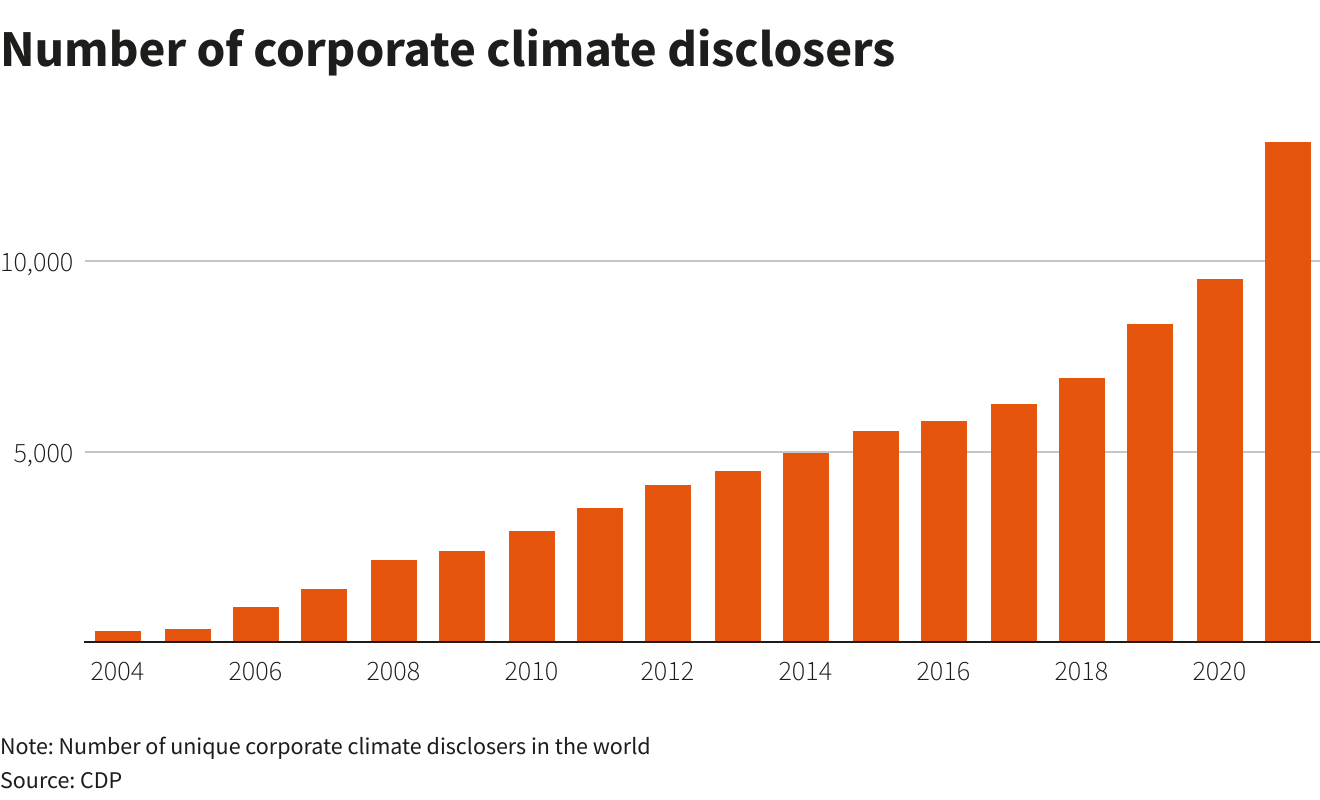
The pace of disclosures has also risen consistently, bar a COVID-19 induced slow-down last year. In 2020-2021, it grew by 38%.
Despite the increase in companies reporting to CDP, the quality of disclosures remains patchy and nearly 17,000 companies received the lowest possible ‘F’ grade in the NGO’s annual assessment for not reporting any data.
After disclosing data, companies are encouraged to set targets to reduce emissions, and specifically targets in line with the science of climate change and the goal to cap global warming at 1.5 degrees Celsius (2.7 Fahrenheit) above the pre-industrial average.
Yet just 1,054 companies have had their targets signed off by the Science-based Targets Initiative, a collaboration between CDP and other NGOs, and less than a thousand of the CDP disclosers report the emissions tied to the goods and services they buy and the use of their sold products.
“We’re clear that for the companies coming into our system, disclosure is the first step of the journey and measurement obviously means that you end up managing and, ultimately, hopefully transforming your business model,” Bartlett said.
The drivers of disclosure continue to be investors and companies pushing their suppliers to act, with further impetus coming from fresh pledges to rein in emissions at U.N. climate talks in Scotland last month.
A regional breakdown, shows the biggest jump in disclosures since Paris was from Latin America, up 332% to 1,614 from 374. Asia climated 201% to 3,774 from 1,256 and Europe, increased 140% to 4,187 from 1,745.
By country, China stood out with a 416% rise in disclosures to 1,408 from 273.
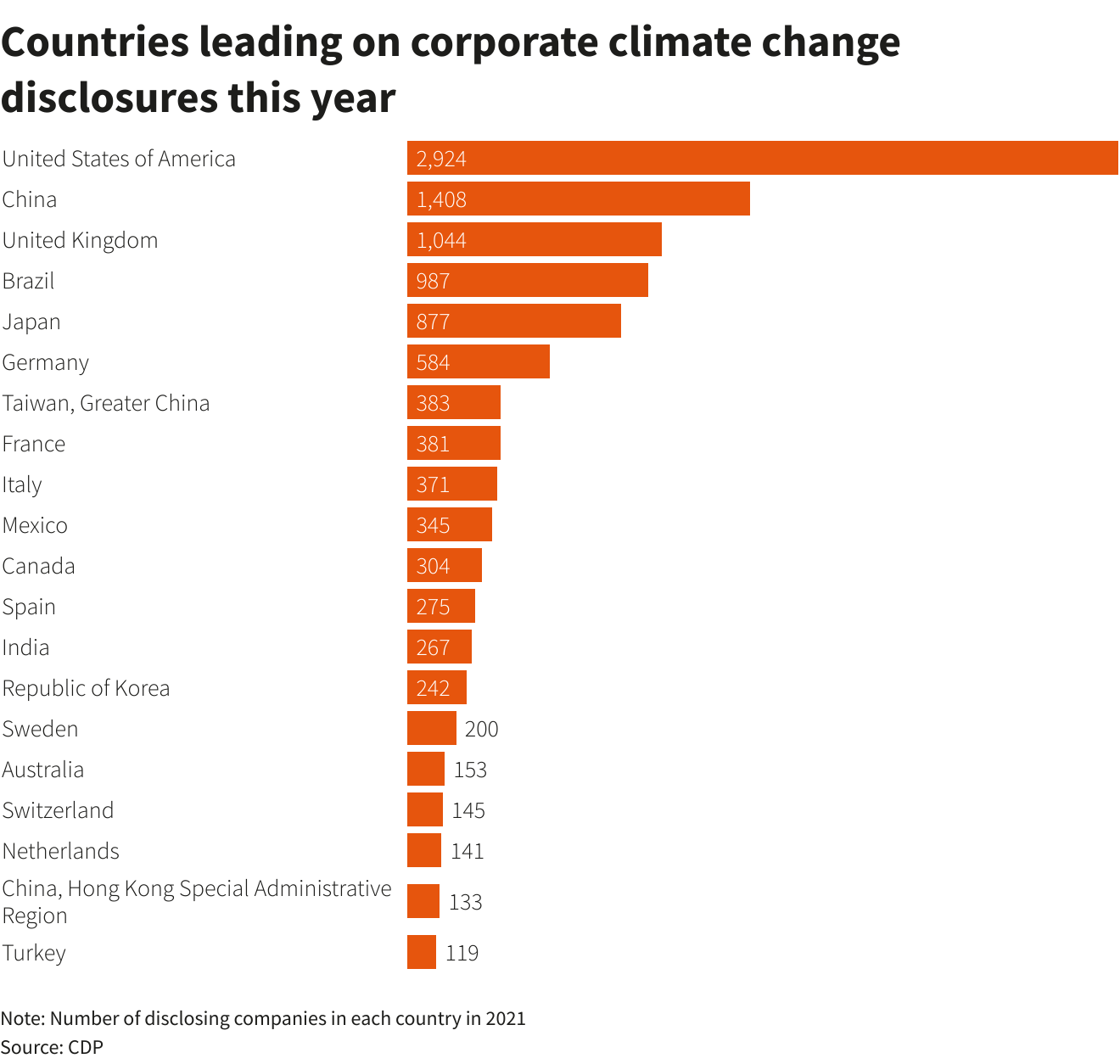
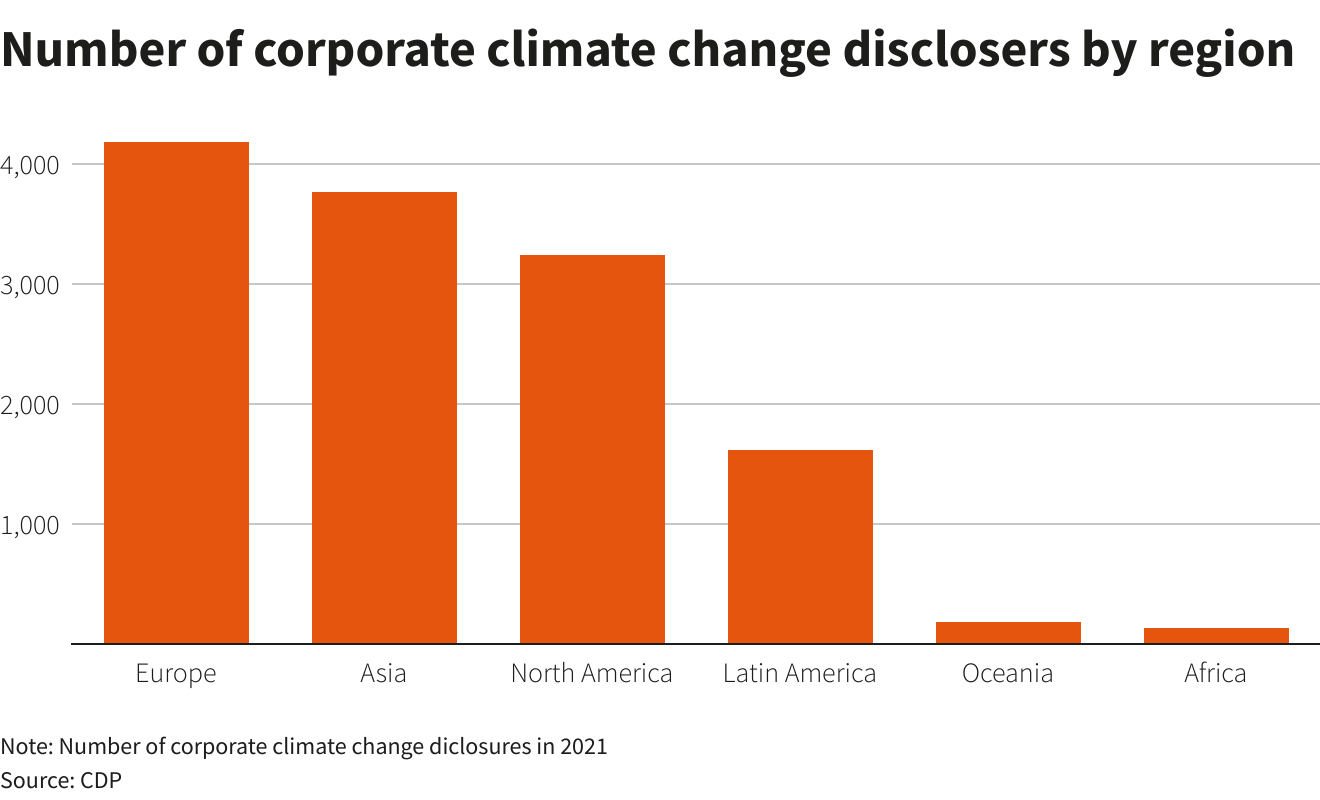
While the number of corporate disclosers jumped, a breakdown by sector shows some of the heaviest-emitting lagged in sharing data.
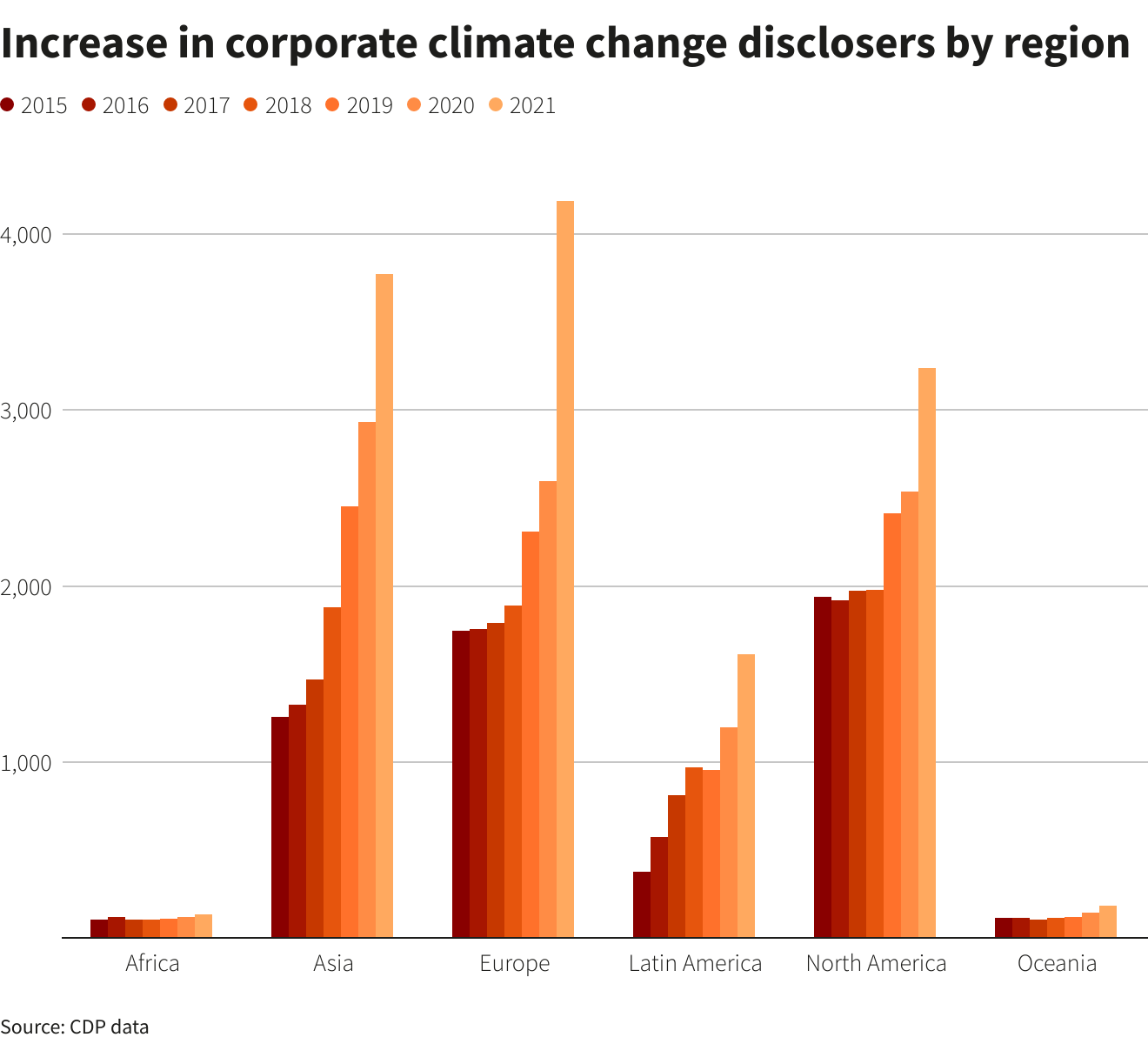
Just 11 coal mining companies and 63 oil and gas producers globally reported data, despite fossil fuels being the chief driver of human-driven emissions. At the other end of the scale, electrical & electronic equipment companies led disclosures, with 1,395.
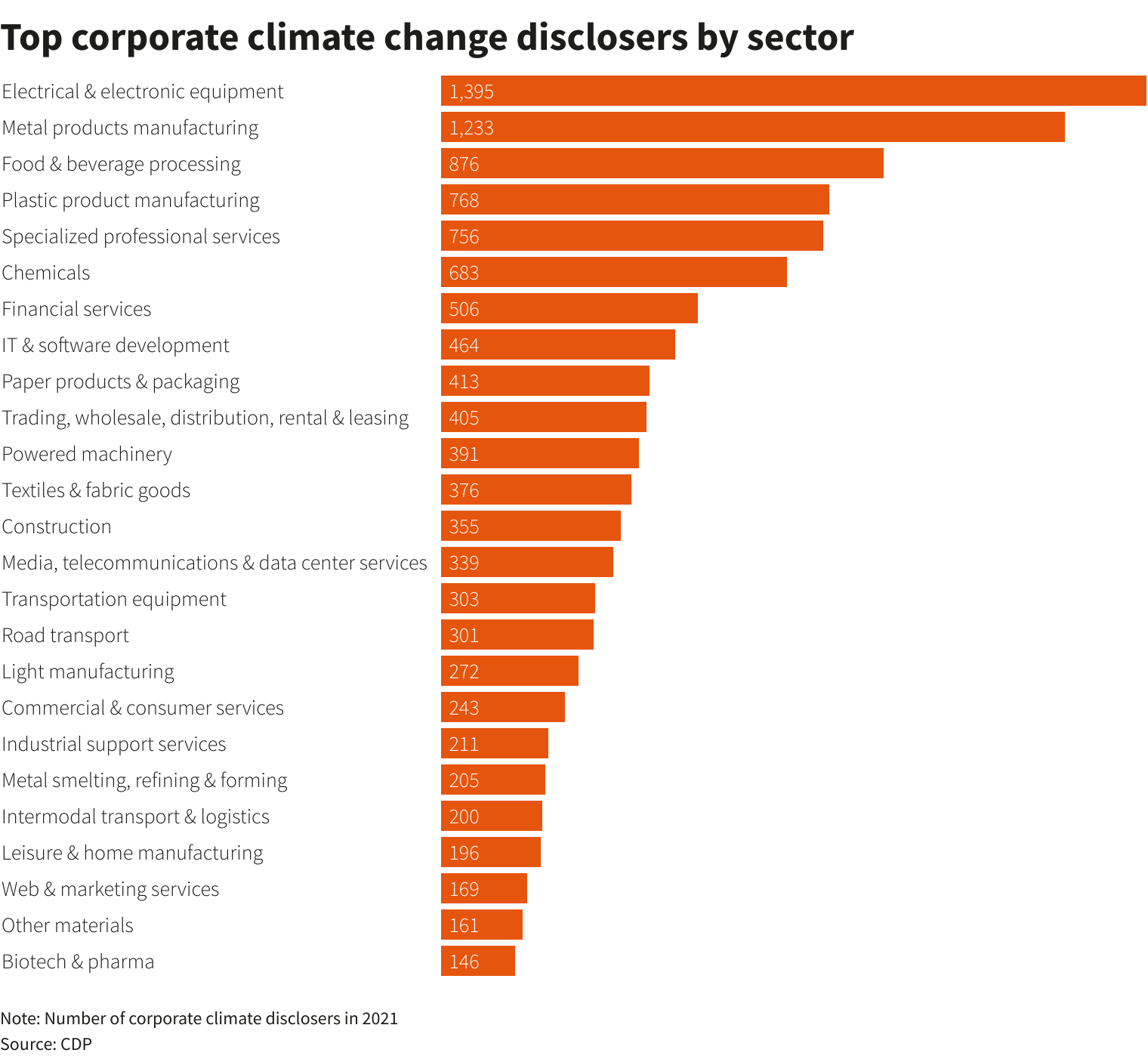
Editing by Barbara Lewis
Our Standards: The Thomson Reuters Trust Principles.
This article was originally published by Reuters.













